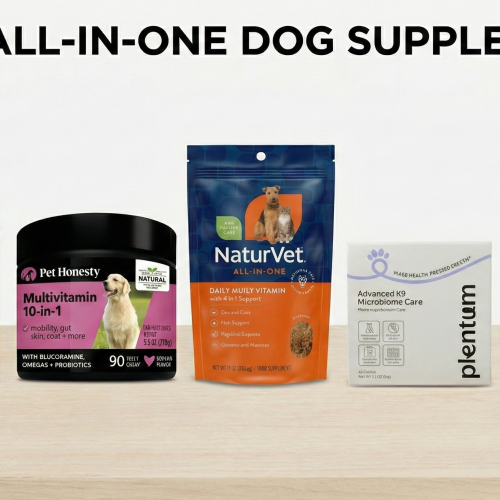Selecting the appropriate probiotic for your canine companion requires careful consideration of breed-specific health vulnerabilities, age-related needs, and individual digestive characteristics. While all dogs can benefit from probiotic supplementation, understanding how breed influences gut health requirements ensures optimal therapeutic outcomes and long-term wellness.
Understanding Your Dog’s Breed-Specific Needs
Why Breed Matters in Probiotic Selection
Research demonstrates that dog breed significantly influences gut microbiome composition and digestive health patterns. Age emerges as the most crucial factor driving gut microbial communities, followed by breed-specific characteristics that predispose certain dogs to unique health challenges. Understanding these breed-related differences helps veterinarians and pet owners select targeted probiotic interventions that address specific vulnerabilities.
Common Health Issues by Breed
Brachycephalic breeds (French Bulldogs, English Bulldogs, Pugs) face unique digestive challenges beyond their well-known respiratory problems. These breeds commonly experience gastroesophageal reflux, esophageal dysmotility, and increased inflammatory responses that can benefit from specific probiotic strains. The shortened skull structure affects not only breathing but also swallowing and digestion, creating an environment where probiotics targeting inflammation and barrier function become particularly valuable.
Small dog breeds like Maltese, Miniature Poodles, and Shih Tzus demonstrate age-specific disease patterns, with skin and ear diseases being most prevalent in younger dogs, while cardiovascular and kidney diseases increase with age. This progression suggests that probiotic selection should evolve with the dog’s life stage, emphasizing immune-modulating strains in youth and anti-inflammatory species in senior years.
Natural Probiotics for Dogs
Benefits of Choosing Natural Options
Natural probiotics for dogs offer several advantages over synthetic alternatives, including better host compatibility and reduced risk of adverse reactions. Canine-derived probiotic strains demonstrate superior survival rates in the dog’s gastrointestinal tract and show enhanced therapeutic efficacy compared to human or dairy-derived strains. The isolation of probiotic bacteria from healthy dog feces ensures host-specific adaptation and optimal colonization potential.
Top Natural Sources for Canine Probiotics
Fermented foods serve as excellent natural probiotic sources, though canine digestive support requires specific strains that can survive the acidic stomach environment. Microencapsulation technology using alginate and goat milk provides optimal protection for probiotic bacteria, ensuring viable counts exceed therapeutic thresholds even after processing. Research shows that alginate-goat milk microcapsules maintain over 6 log CFU/g after pasteurization, making them ideal delivery systems for natural probiotics.
Enterococcus hirae and Ligilactobacillus animalis represent two promising canine-specific strains that demonstrate excellent survival under simulated gastrointestinal conditions. These naturally occurring bacteria, when properly encapsulated, provide sustained probiotic benefits throughout the digestive tract.
Best Probiotics for Puppies
Unique Considerations for Puppy Probiotics
Best probiotics for puppies must address the rapidly developing immune system and establishing gut microbiome. Junior dogs (under 2 years) show distinct microbial profiles characterized by higher Blautia abundance and elevated propionate production, indicating active immune development and metabolic adaptation. Probiotic selection for puppies should focus on strains that support this natural maturation process rather than disrupting it.
The canine digestive support requirements for puppies differ significantly from adult dogs, with emphasis on immune system training and pathogen resistance. Research demonstrates that probiotic effects are age-dependent, with younger dogs showing different responses to bacterial supplementation compared to adults.
Recommended Strains for Puppies
Lactobacillus acidophilus, Bifidobacterium, and Enterococcus faecium represent the most studied strains for puppy health. These bacteria support immune development through competitive exclusion of pathogens and production of beneficial metabolites that promote healthy gut barrier function. Commercial probiotic blends containing these strains demonstrate measurable improvements in feed intake, weight gain, and immune responses in young dogs.
Puppies benefit from multi-strain formulations that provide diverse metabolic functions, including short-chain fatty acid production and antimicrobial compound synthesis. The dose recommendation typically ranges from 10^8 to 10^9 CFU per day, administered consistently over 28-day periods for optimal colonization.
Probiotics for Senior Dogs
Aging and Its Impact on Gut Health
Probiotics for senior dogs address the significant microbiome changes that occur with aging, including decreased microbial diversity and increased inflammatory bacteria. Senior dogs (over 7 years) show elevated Bacteroides populations and modified short-chain fatty acid profiles, particularly increased acetate concentrations. These changes correlate with age-related health challenges including reduced activity, cognitive changes, and increased susceptibility to chronic diseases.
The gut-brain axis becomes increasingly important in senior dogs, with gut health directly influencing behavioral indicators and quality of life. Research demonstrates that age-related changes in intestinal microbiota composition affect not only digestive function but also systemic inflammation and cognitive performance.
Ideal Probiotic Features for Senior Dogs
Senior dogs require probiotics that can restore younger-like microbiome composition while addressing age-related inflammatory processes. Compound probiotic formulations containing multiple Lactobacillus and Bifidobacterium strains show particular efficacy in elderly dogs, effectively shifting gut microbiota toward more youthful profiles. These formulations increase beneficial bacteria like Faecalibacterium prausnitzii while reducing potentially harmful species including Escherichia coli.
Saccharomyces cerevisiae supplementation demonstrates promising results for senior dogs, improving gut barrier function, immune responses, and antioxidant capacity. This yeast probiotic particularly benefits aging Labrador Retrievers, suggesting breed-specific applications for large, senior dogs. The recommended approach combines multiple probiotic strains with prebiotic fibers to maximize therapeutic benefits in aged canines.
Dog Dietary Supplements
Integrating Probiotics with Other Supplements
Dog dietary supplements work synergistically when properly combined, with probiotics enhancing the absorption and efficacy of other nutrients. The integration of probiotics with prebiotics creates synbiotic effects that amplify beneficial microbial colonization and metabolic activity. Research demonstrates that combining probiotics with omega-3 fatty acids, antioxidants, and digestive enzymes provides comprehensive support for canine health.
Timing and dosing considerations become crucial when administering multiple supplements, with probiotics typically requiring administration on empty stomachs for optimal survival. However, certain dog dietary supplements like digestive enzymes may benefit from concurrent administration with probiotics to enhance overall digestive function.
Importance of Quality Ingredients in Supplementation
Quality standards for canine probiotics require specific attention to strain identification, viability counts, and stability during storage. Dog dietary supplements must maintain therapeutic bacterial concentrations throughout their shelf life, typically requiring refrigeration and proper packaging to preserve potency. The use of microencapsulation technology significantly improves probiotic stability and ensures consistent therapeutic delivery.
Multi-strain formulations offer advantages over single-species products, providing diverse metabolic functions and reduced risk of treatment failure. Quality probiotic supplements should specify exact strain designations, guaranteed potency at expiration, and appropriate storage requirements to ensure therapeutic efficacy. The selection of canine-derived strains over human or dairy sources provides optimal host compatibility and enhanced colonization success.







